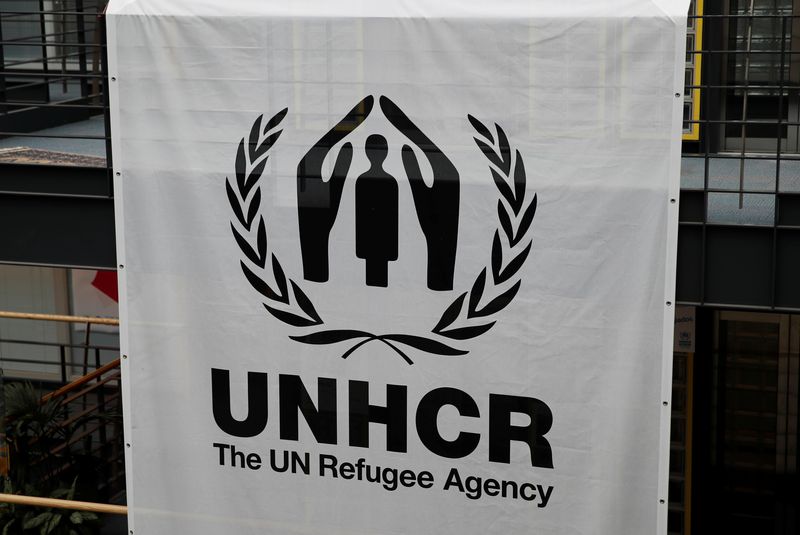
UN SEEKS AID FOR SUDAN REFUGEES FLEEING TO LIBYA, UGANDA
By Emma Farge
GENEVA (Reuters) -The U.N. refugee agency said on Tuesday it is expanding its Sudan aid plan to Libya and Uganda, after a surge in arrivals in those countries of people fleeing the 14-month-old Sudanese civil war.
Sudan is already the world's worst displacement crisis with some 12 million forced to flee their homes and more than 2 million displaced across borders. The latest expansion of the U.N. response plan brings to seven the number of African countries taking in large numbers of Sudanese refugees.
The arrivals in Libya, northwest of Sudan, raise the prospect that the refugees may continue their journey to Europe across the dangerous Mediterranean route - a scenario which UNHCR's chief has already warned about if aid is not provided.
A UNHCR planning document published on Tuesday showed that the agency expects to receive 149,000 in Libya before year-end. It projects 55,000 for Uganda which does not share a direct border with Sudan and already hosts 1.7 million refugees and asylum seekers from other crises.
"It just speaks to the desperate situation and desperate decisions that people are making, that they end up in a place like Libya which is of course extremely, extremely difficult for refugees right now," the UNHCR's Ewan Watson told reporters in Geneva, saying most had arrived there from Darfur where ethnic violence has escalated.
At least 20,000 refugees have already arrived in Libya since last year, with arrivals accelerating in recent months and many thousands more unregistered, Watson added. At least 39,000 Sudanese refugees had arrived in Uganda since the war, he said.
The Sudan aid response is suffering from a shortage of resources amid record humanitarian needs due to multiple crises around the world and as some donors retrench due to domestic budget constraints.
The U.N. plan is less than 20% funded, Watson said.
"Refugees, families are forced to sleep in the open and medical facilities just can't keep up with the growing needs that we are facing," he said.
(Reporting by Emma Farge, editing by Thomas Seythal, Madeline Chambers and Philippa Fletcher)
2024-07-02T11:40:00Z dg43tfdfdgfd